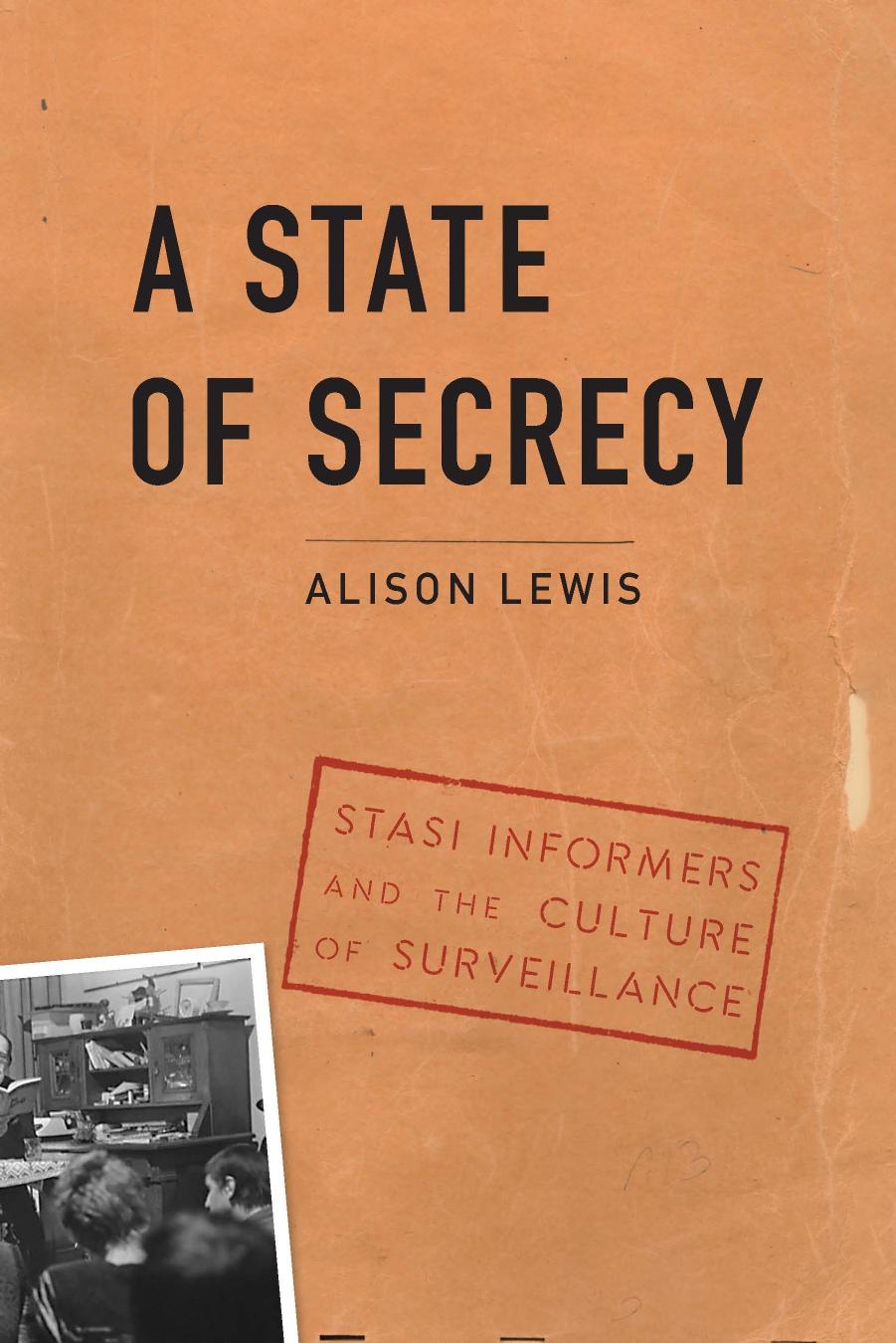A State of Secrecy: Stasi Informers and the Culture of Surveillance by Alison Lewis

Author:Alison Lewis [Lewis, Alison]
Language: eng
Format: epub, pdf
Tags: Europe, Modern, 20th Century, History, Germany
ISBN: 9781640124851
Google: MkY6EAAAQBAJ
Goodreads: 57527316
Publisher: Potomac Books
Published: 2021-10-01T00:00:00+00:00
Paul Wiens: Monitoring the Writersâ Guild
Around the time of the Biermann affair Paul Wiens increased the intensity of his surveillance of his professional circles. The brush fire that the Biermann incident had ignited, which was threatening to explode, burned to the heart of literary life in East Germany. The Writersâ Guild, the regimeâs official mouthpiece on literature, was urgently required to take a leadership role. Yet the guild was riven by internal divisions and fractures that could no longer be papered over, split between those who supported Stephan Hermlin, the initiator of the petition that protested Biermannâs exile, and those who did not. Once the signatoriesâ names had been published by the Reuters news agency, there was a new factionâthose who supported Hermlin but subsequently withdrew their support under pressure. Wiens clearly sided with those who condemned Biermann outright, which was the official line. The problem for Wiens was that most of his colleagues in the guild were deeply shocked at the regimeâs handling of the affair.
Despite sensing that he was in a minority among his colleagues, Wiens fell in behind the regime on this issue. He intensified his efforts within the guild to neutralize the impact of the Biermann affair. Wiens continued throughout 1977 to provide the Stasi with good-quality information from deep inside the guild. This was the year in which East Germany shed itself of the most outspoken elements of its intelligentsia, losing, in the process, debilitating amounts of intellectual and cultural capital.138 Wiens proved a key cultural agent in facilitating the departure of many of the nationâs most talented writers, actors, and poets. Although he saw his role otherwise, he wittingly contributed to this cultural crisis. Many of the poets who left the GDR proceeded to win prestigious literary prizes in the West, while others became acclaimed television and film actors. The Eastâs losses were the Westâs gains.
Wiens seems to have been happy to document the crisis from his position close to the action. In one report he related to the Stasi that there was much disunity among writers in the wake of the open protest letter. In December 1976, for instance, Wiens reported that those who withdrew their support for the letterâlargely because of political interference, either from the Stasi or directly from the SEDâs politburoâwere isolated from the others. He mentioned the beleaguered Günter Kunert, who was allegedly no longer talking to some of his friends.139 Moreover, Wiens reported that Sarah Kirsch and Irmtraud Morgner were no longer talking to one another.140 The strategy of divide and conquer among Biermannâs supporters that the Stasi pursued was bearing fruit, and Wiens was playing a key role.
In an entry concerning Morgner, Wiensâs file offers a clue as to how he justified his surveillance of those close to him. As previously discussed, the file contains no explicit tasks allocated to him in relation to his wife. However, he was incapable of separating his wife from the messiness of other events he was required to report on, and eventually, as discussed above, he did include references to Morgner in his reports.
Download
A State of Secrecy: Stasi Informers and the Culture of Surveillance by Alison Lewis.pdf
This site does not store any files on its server. We only index and link to content provided by other sites. Please contact the content providers to delete copyright contents if any and email us, we'll remove relevant links or contents immediately.
| Espionage | Hoaxes & Deceptions |
| Murder & Mayhem | Organized Crime |
| Serial Killers | White Collar Crime |
Mindhunter: Inside the FBI's Elite Serial Crime Unit by John E. Douglas & Mark Olshaker(9324)
Wiseguy by Nicholas Pileggi(5770)
Room 212 by Kate Stewart(5105)
Hitman by Howie Carr(5089)
Secrecy World by Jake Bernstein(4742)
Killers of the Flower Moon: The Osage Murders and the Birth of the FBI by David Grann(4440)
Papillon (English) by Henri Charrière(4263)
Breaking Free by Rachel Jeffs(4216)
Killers of the Flower Moon by David Grann(4043)
Say Nothing by Patrick Radden Keefe(3975)
American Kingpin by Nick Bilton(3876)
The Secret Barrister by The Secret Barrister(3699)
Molly's Game: From Hollywood's Elite to Wall Street's Billionaire Boys Club, My High-Stakes Adventure in the World of Underground Poker by Molly Bloom(3532)
Mysteries by Colin Wilson(3448)
In Cold Blood by Truman Capote(3378)
Signature in the Cell: DNA and the Evidence for Intelligent Design by Stephen C. Meyer(3132)
I'll Be Gone in the Dark by Michelle McNamara(3082)
Rogue Trader by Leeson Nick(3040)
Bunk by Kevin Young(2993)
